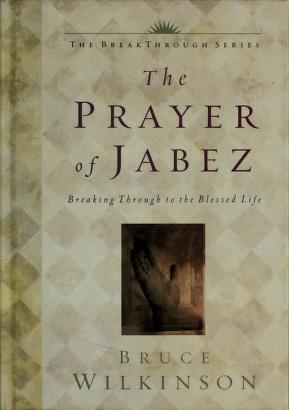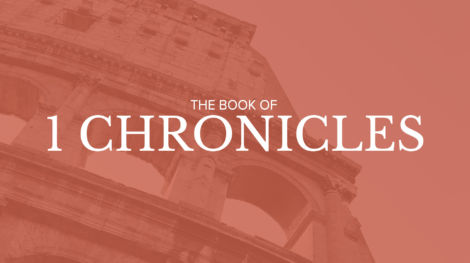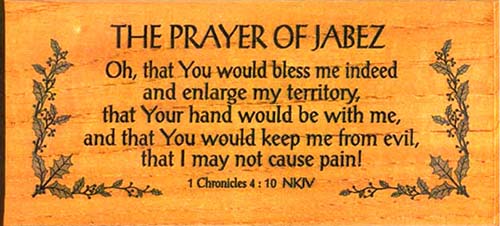The Prayer of Jabez:
Breaking Through to the Blessed Life is a book by Bruce Wilkinson published in 2000 by Multnomah Books as the first book in the "BreakThrough" book series.
The book became an international bestseller, topping the New York Times bestseller list and selling nine million copies.
Criticism
Jabez has been compared to the "prosperity gospel" and has received the reproaches often addressed toward that doctrine, e.g. that the Jabez prayer suggests that God ought to do what people want rather than them following God's will.
“Ask, and it will be given to you” (Mt 7:7).
“You do not have because you do not ask,” (James 4:2).
In Chapter 2 Wilkinson writes that this prayer has nothing in common with the "prosperity theology" as Jabez was asking in blind faith and trusted God to bless him where and when and how it pleased Him.


